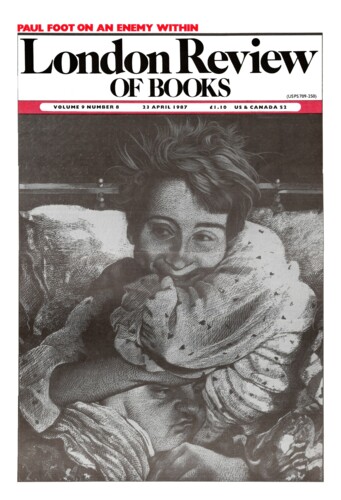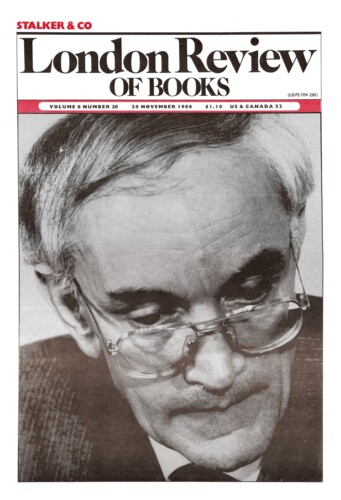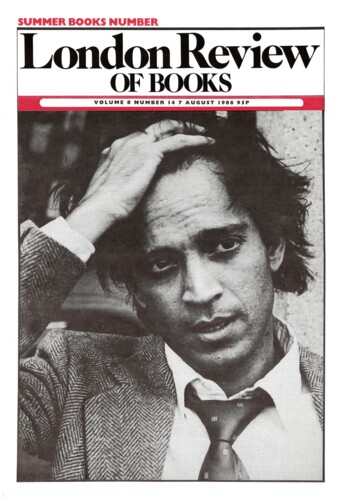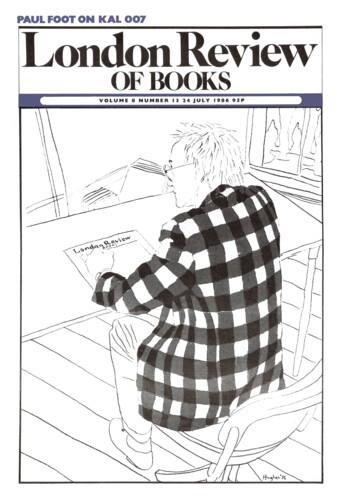Charmed Lives
Patrick Parrinder, 23 April 1987
The English title of Dan Vittorio Segre’s Storia di un Ebreo Fortunato, Memoirs of a Fortunate Jew, has complex resonances. If, as Frank Kermode has recently remarked in this paper, memoirs and confessions are still to some extent separate genres, then it may be said that a conviction of his own good fortune is the distinguishing mark of the memoirist. The memoirs of famous sportsmen, actors and television personalities seem constantly to be saying: ‘Look what a fortunate person I am!’ There are primitive and more or less magical reasons for the perennial popularity of such books. What we hope to get from their authors is a kind of secular blessing, a vicarious laying on of hands. In writing down their charmed lives they themselves are casting a spell, and offering us a share of their good fortune. Lady Luck is the presiding deity of such narratives.





